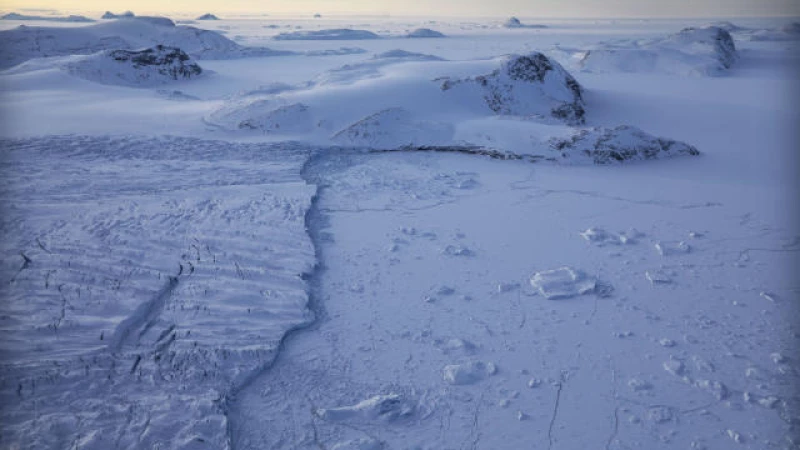Arctic Summer Records Hottest Temperatures Ever
Not unlike the rest of the Earth, this summer was the hottest ever recorded in the Arctic, where scientists say human-caused climate change is heating things up faster than anywhere else in the world. Marked consequences of that have already been seen and felt in communities in and around the planet's northernmost polar region, and their domino effects could end up being even more severe and widespread than they are now.
Citing its latest Arctic Report Card — an annual assessment of how the region is faring environmentally and released this week — the National Oceanic and Atmospheric Administration warned that ongoing carbon emissions, in the United States and beyond, will only continue to drive dramatic changes in the Arctic that in turn contribute to extreme weather events in places far from there. Officials with the agency urged people to take action.
"The time for action is now," emphasized Rick Spinrad, the administrator of the NOAA, in a statement. He further stated that NOAA and federal partners have increased their support and collaboration with state, tribal, and local communities to enhance climate resilience. However, as a nation and global community, it is crucial to significantly reduce greenhouse gas emissions responsible for driving these changes.
The Arctic Report Card, in its 18th year, presents the findings of 82 authors from 13 countries. The latest edition highlights several alarming conclusions, including the record-breaking summer surface air temperatures in the Arctic, which were the warmest observed in over a century of record-keeping. Additionally, 2023 ranked as the sixth-warmest year on record for the region.
This report follows the United Nations' weather agency's declaration earlier this year that the planet experienced its hottest three-month period on record during the summer. Experts have drawn clear connections between the soaring temperatures and the devastating wildfires that ravaged vast areas of land across continents, posing a threat to human health due to depleted air quality. Moreover, the European Union's Copernicus Climate Change Service recently announced that 2023 was the hottest year on record globally.
In a significant milestone, the Arctic Report Card for 2023 has included the contributions of the Alaska Arctic Observatory and Knowledge Hub. This collaboration between the observatory and coastal Indigenous observers has resulted in valuable insights into the long-term environmental changes in northern Alaska. The report highlights the region's challenges, including sea ice loss, warmer air and ocean temperatures, changing wind patterns, and increased intensity and frequency of coastal storms. These factors have led to detrimental effects such as flooding and erosion in the area.
Recent changes in the Arctic region have had a direct impact on the extreme weather experienced this summer in large parts of North America. Experts have linked the "unprecedented" increases in polar temperatures to the warmer spring and early snowmelt over northern Canada, which set the stage for the worst wildfire season in the country's history.
The consequences of these changes may extend even further. The 2023 Arctic Report Card revealed a continued decline in sea ice extent and melting on Greenland's ice sheet, a phenomenon that has only occurred five times in the past 34 years. Another study published in November focused on melting in Greenland, showing that the region has lost over one-third of its ice volume in the last 50 years due to rising temperatures. Scientists warn that if this trend continues, there could be "dramatic consequences" for the planet, as the Greenland ice sheet is a major contributor to rising sea levels worldwide.
The Arctic Report Card also highlighted the efforts of communities and organizations, such as the Alaska Arctic Observatory, that are actively working on solutions to combat climate change and its wide-ranging impacts.
In Finland, an organization called the Snowchange Cooperative has played a crucial role in the restoration of vast peatlands that were damaged by mining and industrial forestry. Through collaboration with rural Finnish and Indigenous Sámi communities, the organization has successfully restored over 100,000 acres of mined and drained Finnish peatlands. This achievement marks a significant improvement in the conservation of these valuable ecosystems.
In addition, a remote northern community in Svalbard, Norway, which is known as the fastest-warming place on Earth, is also taking notable measures to reduce emissions. These efforts are particularly important as they aim to mitigate the melting of the surrounding glaciers.







